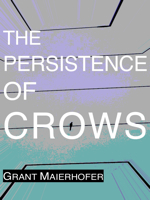 For a precursor to this post, see Early Sampling with Luigi Russolo’s Intonarumori.
For a precursor to this post, see Early Sampling with Luigi Russolo’s Intonarumori.
Paul Hindemith is well known for his traditional orchestral compositions from the early 20th century, but tucked away in his sizable body of work is a little-known experiment conducted in collaboration with fellow Teuton Ernst Toch which constitutes one of the first attempts at composition through manual manipulation of record players, also known as turntablism.
In 1930, Hindemith recorded a pair of works called “Trickaufnahme” (“trick recordings”). Equipped with (at least) two turntables and a microphone, he altered the frequency and speed of xylophone and cello recordings, mixing them together to produce sounds and rhythms that did not exist in the originals. Here is a bit of “Trickaufnahme” from 1930:
Audio clip: Adobe Flash Player (version 9 or above) is required to play this audio clip. Download the latest version here. You also need to have JavaScript enabled in your browser.
In the same collection of recordings was Ernst Toch’s “Gesprochene Musik” (“spoken music”). Toch manipulated the playback of vocal recordings to experiment with the unnatural sounds and frenetic beats that emerged. While none of the “Gesprochene Music” recordings have survived, one of the pieces has been adapted for live performance by many vocal ensembles. It’s called “Geographical Fugue” and when performed live in this manner, it amounts to little more than a high-brow version of “Peter Piper” with geographical names:
Several years later, John Cage followed up on these exercises with his own bit of turntablism, “Imaginary Landscape No. 1”. Cage starts with recordings of test tones and provides precise instructions for the manipulation of their playback speed (and thus their pitch). The tones are accompanied by treated piano and cymbal:
These early works may seem far removed from the looping and scratching of today’s hip hop turntablists, but I submit to you that it is thanks to the pioneering work of Hindemith, Toch, and Cage that we can enjoy artistry like this today:








